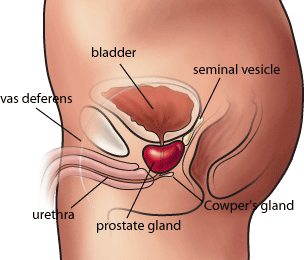Prostacet increases your Prostates Health
Shown to reduce Prostate Size
Supports a Healthy Immune Function
Recommended, click here.
A host of prostate treatments options are now available for men who suffer from conditions such as prostatitis, enlarged prostate and even cancer. The escalating number of men suffering from prostate cancer, BPH and prostatitis has awakened the medical community to the need to develop treatment options to address these conditions.
For prostate cancer patients, several options are available to help them manage and treat their condition. A host of prostate treatments have been developed by scientists to fit almost all levels and types of prostate gland disorders. Product
Promote good circulation within prostate tissue
Provide antioxidant support for prostate tissue
Inhibit inflammation within the prostate
News
ETMC launches 11th annual free prostate cancer screening (Bullard Banner News)
It's time to sign up for East Texas Medical Center Regional Healthcare System's 11th annual free prostate cancer screening for men. "From our annual ETMC PSA (prostate specific antigen) blood tests, 118 tests came back with abnormalities.
The SPARC trial evaluated satraplatin plus prednisone versus placebo plus prednisone in 950 patients with castrate-refractory prostate cancer who had progressed after initial ...
***Prostate cancer is a disease in which malignant (cancer) cells form in the tissues of the prostate.
Prostate cancer is found mainly in older men. The symptoms of benign prostatic hyperplasia or of other problems in the prostate may be similar to symptoms of prostate cancer.
Possible signs of prostate cancer include a weak flow of urine or frequent urination.
These and other symptoms may be caused by prostate cancer. Tests that examine the prostate and blood are used to detect (find) and diagnose prostate cancer.
PSA is a substance made by the prostate that may be found in an increased amount in the blood of men who have prostate cancer. PSA levels may also be high in men who have an infection or inflammation of the prostate or BPH (an enlarged, but noncancerous, prostate).
There are 2 types of biopsy procedures used to diagnose prostate cancer:
Transrectal biopsy: The removal of tissue from the prostate by inserting a thin needle through the rectum and into the prostate. The stage of the cancer (whether it affects part of the prostate, involves the whole prostate, or has spread to other places in the body).







No comments:
Post a Comment